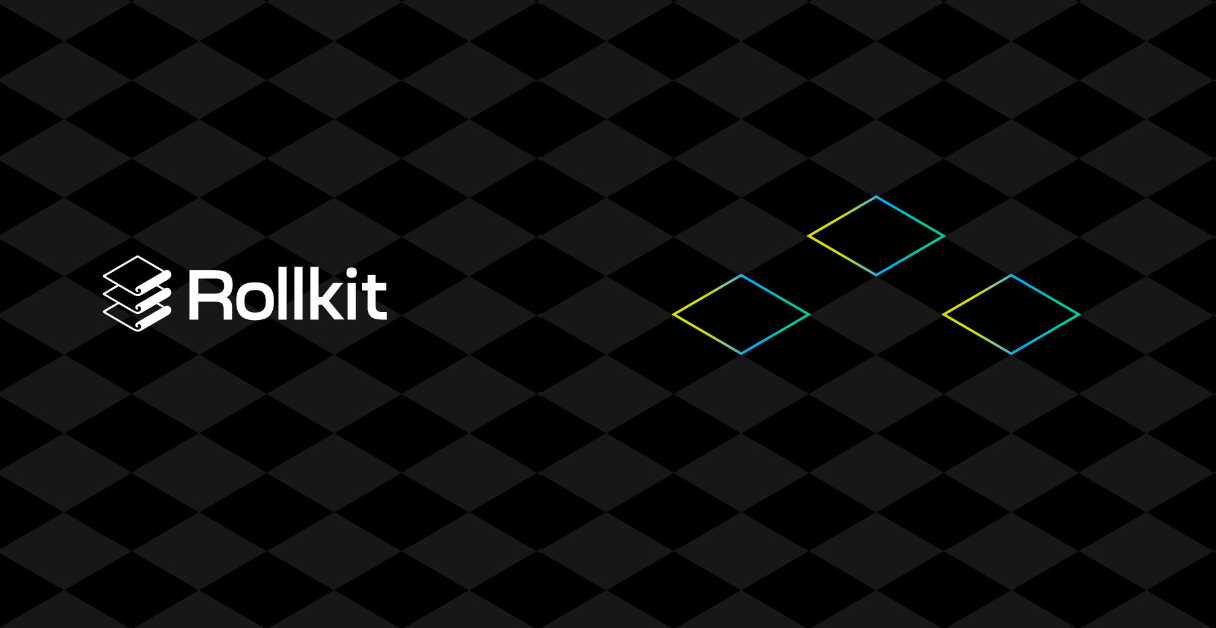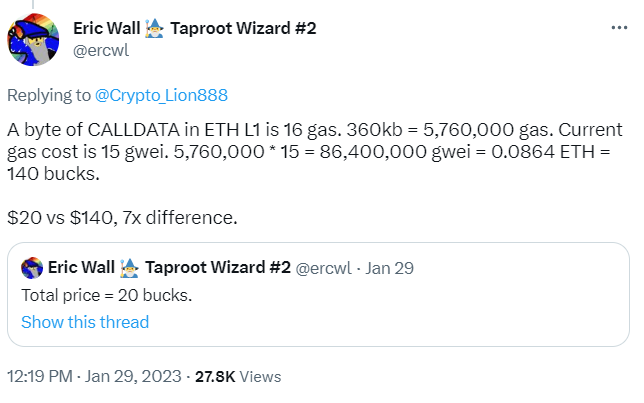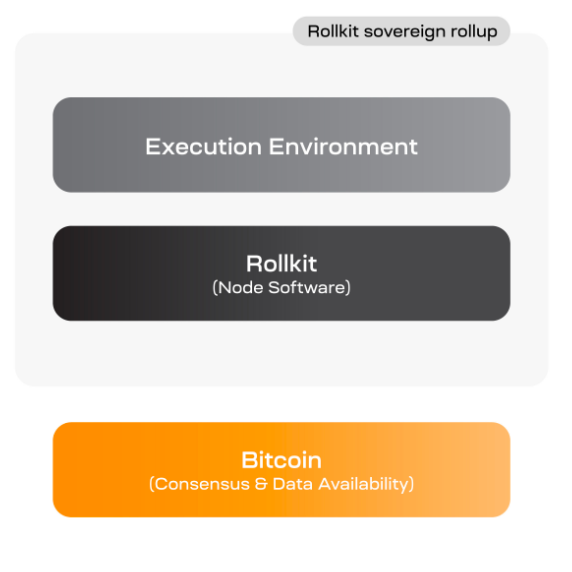
Rollkit has made it possible to create sovereign rollups on Bitcoin for data availability, thanks to its new early research integration. You can witness a demo of the EVM running on Bitcoin as a sovereign Rollkit rollup. This development is facilitated by Bitcoin’s Taproot upgrade and Ordinals’ innovative use of Bitcoin for publishing arbitrary blockchain data.
Rollkit Enables Custom Rollups on Bitcoin with Data Availability Guarantees
Rollkit’s latest integration offers developers the opportunity to build rollups with custom execution environments that leverage Bitcoin’s data availability guarantees and re-org resistance. By enabling the implementation of EVM on Bitcoin as a Rollkit sovereign rollup, the possibilities for rollups have expanded, and there is potential to establish a sustainable security budget and promote a healthy blockspace fee market on Bitcoin.
The Luxor mining pool made history on February 1, 2023, by successfully mining the largest Bitcoin block (#774628) to date, which was approximately 4 MB in size. The majority of the block’s space was utilized to include a Taproot Wizards NFT with Ordinals, a pioneering project that leverages Bitcoin to implement NFTs by uploading the image data onto the blockchain.
Taproot Upgrade Enables Arbitrary Data Inscription on Bitcoin NFTs
With the implementation of Bitcoin’s Taproot upgrade, Taproot witnesses are now utilized to inscribe arbitrary data onto Bitcoin NFTs. Compared to SegWit transactions, Taproot witnesses offer a slightly superior payload-to-data ratio. A standard transaction can carry around 390kB of arbitrary data and still make its way through the public mempool. However, a non-standard transaction, directly included by a miner without going through the mempool, can accommodate almost 4MB of arbitrary data. Essentially, SegWit has made it possible to upload substantial amounts of data to the Bitcoin blockchain.

With the introduction of Ordinals for NFT inscriptions and the utilization of Taproot, the adoption of Bitcoin has surged. According to Eric Wall, posting data on Bitcoin was seven times cheaper than Ethereum at the time of his tweet. Thousands of inscriptions on Bitcoin have emerged, indicating that a future with sovereign rollups and a dapp ecosystem on Bitcoin is feasible. However, what’s lacking is a rollup framework that seamlessly integrates Bitcoin as a data availability layer.
Customizable Rollup Framework Rollkit Now Supports Bitcoin Data Availability
Rollkit is a flexible rollup framework that allows developers to incorporate customized execution layers and data availability layers. In the past, Celestia was the only option supported by Rollkit for data availability and consensus. However, with the introduction of an early research implementation of a Bitcoin data availability module, Bitcoin has now become an option. With this new feature, sovereign rollups can handle their own execution and settlement while delegating consensus and data availability to Bitcoin.

Copyright Attributed to rollkit.dev
For reading and writing data on Bitcoin, Taproot transactions are employed. To enable this, we have created a Go package called bitcoin-da, which offers a reader/writer interface to Bitcoin. For specifics on how the interface functions and how Taproot is utilized, refer to the specs. This package is open for reuse by any project that desires to write or read data on Bitcoin.
Rollkit’s Modular Architecture Enables Flexible Data Availability Integration
Modularity is the foundation of Rollkit’s architecture. It includes a data availability interface that enables developers to easily incorporate new data availability layers by implementing specific methods. Adding a data availability layer necessitates satisfying the DataAvailabilityLayerClient interface, which governs the data availability client’s actions, as well as the BlockRetriever interface, which specifies how blocks can be synchronized – this da package contains both interfaces. The key methods in these interfaces are SubmitBlock and RetrieveBlock, which facilitate the reading and writing of blocks.
Integrating bitcoin-da as a data availability module for Rollkit was a swift process that took less than a day to complete following the implementation of the Taproot reader/writer interface for Bitcoin. The majority of the effort involved implementing the SubmitBlock and RetrieveBlocks functions for Rollkit to access the Read and Write methods in bitcoin-da.
Sovereign Rollups on Bitcoin Made Possible with Rollkit
The increasing cost of deploying a layer 1 blockchain has made it challenging for applications to create their own sovereign chain. However, Rollkit provides a solution by enabling the creation of a sovereign chain that leverages the data availability and consensus of another layer 1 chain like Bitcoin.
Developers are encouraged to explore Rollkit and build sovereign rollups on Bitcoin, or modify Rollkit with different execution environments and data availability layers. Detailed instructions on how to use Rollkit with the Bitcoin data availability module are available. However, it should be noted that the integration is still in the early research stage and is not yet ready for production use.
